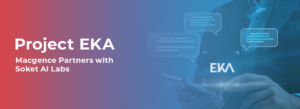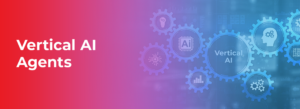Types of AI Agents and Their Impact
Artificial Intelligence (AI) is no longer a distant possibility; it’s at the forefront of innovation, changing the way industries operate and societies function. At the core of AI lies the concept of AI Agents—systems designed to perceive their environment, process information, and make decisions. These agents are increasingly integral across sectors, from revolutionizing businesses with data-driven output to making strides in personal technology and autonomous systems. But not all AI Agents are the same. Understanding their classifications, applications, and potential will help us grasp why they are crucial for the future of AI. This guide will explore the types of AI Agents, real-world use cases, challenges in their development, and what’s next for AI Agent technology.
What Are AI Agents?
Defining AI Agents
An AI Agent is a computing system capable of perceiving its environment, analyzing it, and taking an action to achieve predefined goals. These actions are carefully programmed and based on data this system collects, enabling it to interact with the real world or simulated environments intelligently.
Whether it’s a virtual assistant like Siri or a self-driving car, AI Agents are the implementation layer of artificial intelligence that brings algorithms to life.
Why Are AI Agents Important?
From data processing to automating repetitive tasks, the role of AI Agents goes beyond simple computation. They are essential to innovations in business, healthcare, education, and more because of their ability to simulate human decision-making, learn over time, and improve processes for better outcomes.
For businesses, these agents can provide speed and efficiency in operations, while for AI developers, they represent a platform to scale innovation.
Types of AI Agents

AI Agents are generally categorized into four major types, each with distinct functionalities and limitations. Here’s a detailed breakdown of their classifications with examples to provide clarity.
1. Reactive Agents
Reactive agents are the simplest form of AI agents. They operate entirely on what they perceive at the moment without any memory or understanding of the past. These agents work on condition-action rules, which means decisions are based on specific, real-time inputs.
Example:
- IBM’s Deep Blue defeated world chess champion Garry Kasparov by calculating the best move based on the current chessboard state, without considering previous moves.
Key Feature: They are limited in scope but exceptionally efficient in environments requiring real-time responses.
2. Limited Memory Agents
Limited Memory AI agents are more advanced than reactive agents, as they maintain memory of past data and use it to influence decisions. These agents are often seen in machines that require a basis for predictions or slight adaptation to changing environments.
Examples:
- Self-Driving Cars: They use sensor data (e.g., road conditions, traffic movement) and past observations to inform real-time decisions.
- Chatbots: Limited Memory empowers a chatbot’s ability to reference earlier parts of a conversation.
Key Feature: They function effectively in dynamic situations and are widely used in machine learning models.
3. Theory of Mind Agents
This category introduces an exciting leap by conceptualizing the mental states of other entities—understanding intentions, emotions, and thought processes. For now, these agents remain a conceptual goal for AI researchers.
Potential Use Cases:
- AI Companions or Therapists: Applications designed to build deeper human interactions based on empathy and intent.
- Collaborative Robots (Co-bots): Robots that adapt to human goals and emotional states in workplace settings.
Key Feature: These agents mimic cognitive human interactions and can adapt based on more abstract social cues.
4. Self-Aware Agents
Self-aware AI reflects the pinnacle of AI technology—a system that is not only aware of its actions but also conscious of its existence and goals. These agents don’t exist yet and remain deeply theoretical.
Vision for the Future:
- Fully autonomous systems, possibly used for problem-solving in diverse settings such as space exploration.
- Ethical machines that could better align decisions with human values.
Key Feature: Self-awareness enables independent decision-making on a monumental level.
Use Cases of AI Agents in the Real World
The ability of AI Agents to adapt across a variety of use cases makes them indispensable in modern technology. Here are some real-world applications categorized by their type.
Reactive Agents
- Gaming: Complex NPC (non-player characters) performance in video games.
- Automated Monitoring: Security cameras relying on immediate threat detection.
Limited Memory Agents
- Healthcare Diagnostics: Analyzing patient medical records and past reports to recommend treatment options.
- Predictive Maintenance: Monitoring machinery for signs of wear in manufacturing and utilities.
Theory of Mind Applications
- Customer Experience: Creating robots for retail stores capable of recognizing shopper intent and preferences.
- Social Interaction AI: Robots offering companionship for elderly individuals.
Concepts of Self-Aware Agents
- Future Robotics: Systems capable of autonomously running entire operations, from managing cities to personalizing user experiences on a profound level.
Challenges and Advancements
Despite AI Agents’ tremendous potential, they are not without their challenges.
Challenges in AI Development
- Data Dependency: AI agents need immense volumes of high-quality data for training, and data insufficiency can result in limited functionality.
- Algorithmic Bias: If not handled correctly, biased data leads to flawed outcomes, especially in sensitive environments like hiring or policing.
- Ethics and Safety: Ensuring that AI agents’ actions align with ethical values remains a critical issue.
Advancements Addressing These Challenges
Businesses like Macgence play a pivotal role in advancing AI by providing high-quality datasets to train AI/ML models effectively. By eliminating gaps in data availability, companies can now design AI agents that are efficient, more accurate, and adaptable across use cases.
Furthermore, advancements in natural language processing (NLP) and deep learning algorithms have pushed the boundaries of what AI agents can accomplish, steering us closer to Theory of Mind and Self-Aware systems.
What the Future Holds for AI Agents
Transformation Across Industries: AI agents will continue to redefine healthcare, manufacturing, transportation, and even creative fields.
For instance, we can expect industries like marketing and supply chain management to rely almost entirely on predictive AI agents to automate operations and improve customer targeting.
However, with advancements, ethical concerns regarding privacy, job displacement, and accountability will also take center stage—making responsible development and implementation non-negotiable.
FAQs
Ans: – The most advanced AI Agent is the Self-Aware type. However, it currently exists as a theoretical model, as technology has not yet achieved self-aware AI development.
Ans: – AI Agents allow businesses to automate processes, increase efficiency, and improve customer experience. Examples include predictive maintenance and AI-powered chatbots for customers.
Ans: – Macgence provides high-quality, diverse datasets that power AI/ML training models, ensuring accurate and efficient outcomes across industries.
You Might Like
February 28, 2025
Project EKA – Driving the Future of AI in India
Artificial Intelligence (AI) has long been heralded as the driving force behind global technological revolutions. But what happens when AI isn’t tailored to the needs of its diverse users? Project EKA is answering that question in India. This groundbreaking initiative aims to redefine the AI landscape, bridging the gap between India’s cultural, linguistic, and socio-economic […]
March 7, 2025
What is Data Annotation? And How Can It Help Build Better AI?
Introduction In the world of digitalised artificial intelligence (AI) and machine learning (ML), data is the core base of innovation. However, raw data alone is not sufficient to train accurate AI models. That’s why data annotation comes forward to resolve this. It is a fundamental process that helps machines to understand and interpret real-world data. […]
March 6, 2025
Vertical AI Agents: Redefining Business Efficiency and Innovation
The pace of industry activity is being altered by the evolution of AI technology. Its most recent advancement represents yet another level in Vertical AI systems. This is a cross discipline form of AI strategy that aims to improve automation in decision making and task optimization by heuristically solving all encompassing problems within a domain. […]
March 5, 2025
Use of Insurance Data Annotation Services for AI/ML Models
The integration of artificial intelligence (AI) and machine learning (ML) is rapidly transforming the insurance industry. In order to build reliable AI/ML models, however, thorough data annotation is necessary. Insurance data annotation is a key step in enabling automated systems to read complex insurance documents, identify fraud, and optimize claim processing. If you are an […]





